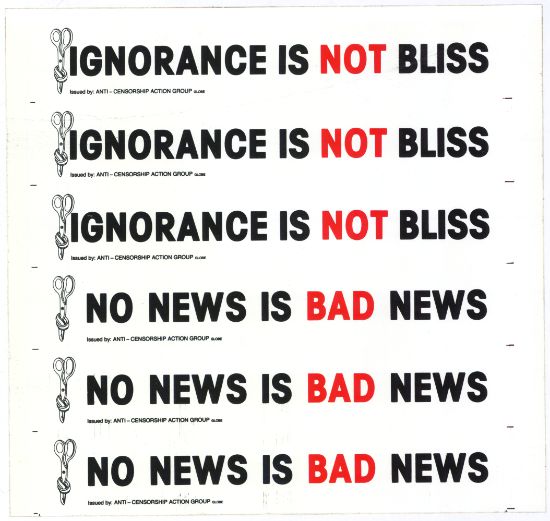
No policies, processes or procedures. Outdated archival tools and recording materials. No budget allocated for over 5 years. This is just the tip of the iceberg of the sad state of the South African Police Service's video archives.
SAHA's request
SAHA's Freedom of Information Programme requested from SAPS records related to the capturing, acquiring, distributing and archiving of police audio visual material.
SAHA asked for SAPS' policies, processes and procedures for preserving and archiving audio visual material that was received, recorded and/or confiscated by SAPS. SAHA also asked for policies, processes, and procedures for managing requests by third parties who want to access or use audio visual material held by SAPS. The request also sought information regarding:
• SAPS' plans to digitize audio visual material recorded on outdated technology;
• SAPS' budget for preserving audio visual material for the 2005 - 2012 period;
• A list of all audio visual material recorded, acquired or confiscated by SAPS from 1983 to July 2012;
• The number, nature and content of audio visual materials transferred from SAPS to the National Archive.
SAPS' response to the request
In response, SAPS stated:
• "There are no policies in place regarding the archiving of video footage..."
• "There are no processes and procedures in place for the preservation of video footage..."
• "We are currently planning to clean and transfer all Umatic High Band and Umatic low-band cassettes to XD-Cam format..."
• "There was no budget allocated specifically for the preservation of audio-visual material from 2005 to 2012...."
• "There are no records indicating the number, nature and content of any audio visual material transferred from corporate communication to the national archives..."
Unpacking the request
In trying to understand the rational behind the request, we need to understand why archives exist. According to the South African National Archives website, records exist because they "were created for a specific purpose as evidence of transactions." The website further states:
" ... by preserving public records created by governmental bodies as archives, the National Archives and Records Service seeks to preserve the memory of what a governmental body, an organization or an individual did, as well as the circumstances and context connected with the activity. Archival records therefore help us to understand who we are, either as individuals or as organizations, and where we come from. By providing us with information about our past, we are better able to understand the present. This information is as important to a nation as individual memory is to each person."
By this rational, there need to be organized systems in place guided by policies which spell out processes and procedures. Archiving operations need to be allocated a budget from which to operate and be maintained. This has clearly not been the case with regards to the police archive.
Further steps
Armed with this information, SAHA plans to further interrogate the current state of the video archives. SAHA aims to submit more requests to seek clarity on the responses given and to scrutinize what this information can tell us about how SAPS' is tackling its responsibility to be accurate and accountable in its archiving.
You can view these and other released documents through SAHA's Freedom of Information Program collection.





